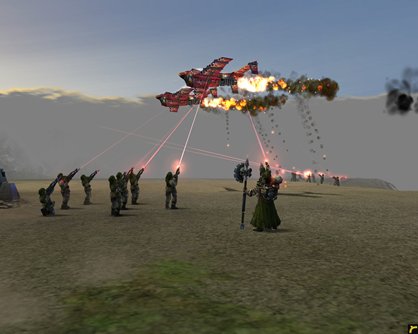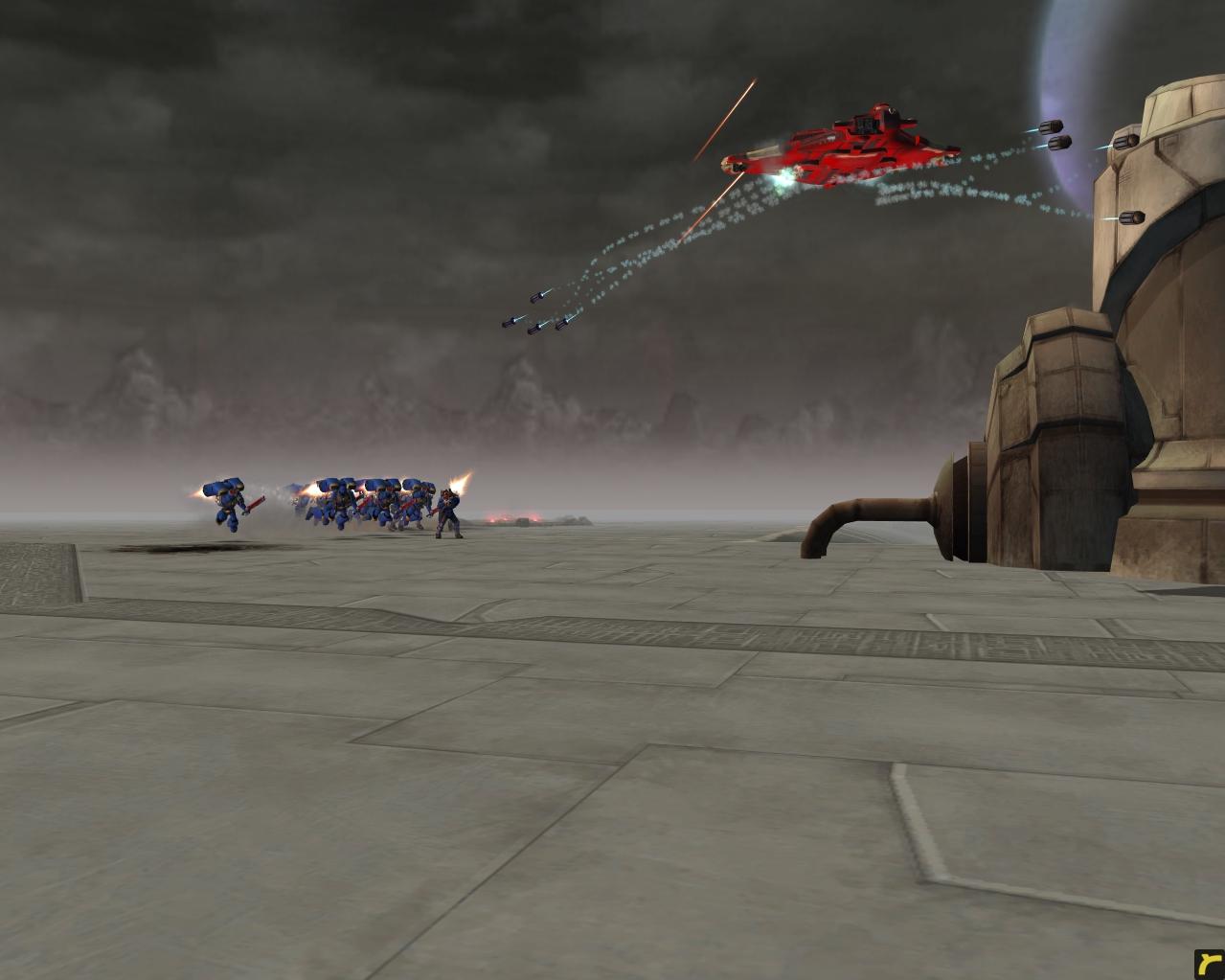GamesRadar+ Verdict
Pros
- +
Evolved and balanced
- +
No-mess multiplayer
- +
Completes a great series
Cons
- -
Not the next big thing
- -
Old engine
- -
Weak campaign
Why you can trust GamesRadar+
Eighteen months have passed since the last Dawn of War release, and nearly four years since the original game emerged from the RTS void. In the lifecycle of interactive electronic entertainment (Sims-branded shop fodder notwithstanding), that’s a lengthy span to have to endure to keep a single game alive. Most developers, even the lazy ones, can usually find enough time to squeeze out a proper sequel. To be fair to Relic though, who’ve been credited as co-developers on Soulstorm, they have been a bit preoccupied with Company of Heroes, which (apart from being set 38,000 years before the game that first pretty much nailed down the take-and-hold RTS mechanic) was in every respect as good a sequel as we could’ve hoped for anyway.
With that in mind, you have to wonder what minds were at work to conceive Soulstorm - when in almost every area the underlying gameplay has been refined (or superseded in the case of the graphics) multiple times over. The answer to that conundrum lies within a certain magic number. Previous to Soulstorm that figure stood at seven - representing the number of 40k races that featured after Dark Crusade, Dawn of War’s last outing. Soulstorm brings the total to nine, and whilst the two latest factions might not be fan favorites, the fact that you’ll have to try them out against the seven established ones adds a considerable amount of playtime as you throw them into the fray.
Of the two newcomers to the series, the Dark Eldar are the more intriguing. Being the dark elves of the 40k universe, they’re sturdier than their leaf-eared counterparts, can hit hard and dominate a map quickly given half a chance. Their ability to keep up the pressure as a battle wears on may be called into question, since their vehicles aren’t the toughest, but their battlefield spells have enough sting to keep up the pressure. On the other side of the moral spectrum are the Sisters of Battle: a bunch of female fundamentalists that fall in between the original game’s Space Marines and Winter Assault’s Imperial Guard, and they’re hard to play because of it, being stalwart in defense and solid enough going forward that an all-arms frontal assault is often the best policy.

Although the new litter falls short of 40k’s iconic and established races, the developers certainly haven’t skimped on the details in how the units look. Dark Eldar warriors will open a vein before draining themselves to take a control point, whilst the righteousness of the Sisters of Battle is taken to extremes of parody. The Pope himself would surely laugh at seeing an Exorcist: a tank-mounted church organ ridden by an armored soldier, which fires deadly rockets into the unbelievers rather than playing out music for the soul.
Each of the seven old races has received a new unit, all being of the airborne variety. To be fair, these new flying units don’t behave much differently from the ones that skimmed above the ground in previous releases - indeed they often can get stuck behind units on the ground, highlighting the limitations of the game engine. Even so, they are a welcome addition to each races’ armory, not least because they can be pretty devastating even with the small numbers the game allows thanks to its zealous unit cap. By using aircraft to skip over terrain, and with clever use of jump units, it’s possible to really throw your enemy off guard.
The great thing about Dawn of War has always been that because you can tell by the minimap how many units your opponent will be able to field, when the fog of war lifts you can start to calculate what and where they might be. The game’s poker-like balance of quick guesswork and calculation has always been important in multiplayer games and that’s now even more true with so many different sides potentially involved. There are still imbalances: the Necrons remain the end-game master race in our book and the new Dark Eldar are hard to repel early on, but then again when you put those two head-to-head you’ve got yourself quite a game.
More info
| Genre | Strategy |
| Description | There's something special lurking within a series that has four years of post-release love and Soulstorm is a fitting testament to that. |
| Franchise name | Warhammer |
| UK franchise name | Warhammer |
| Platform | "PC" |
| US censor rating | "Mature" |
| UK censor rating | "" |
| Release date | 1 January 1970 (US), 1 January 1970 (UK) |



